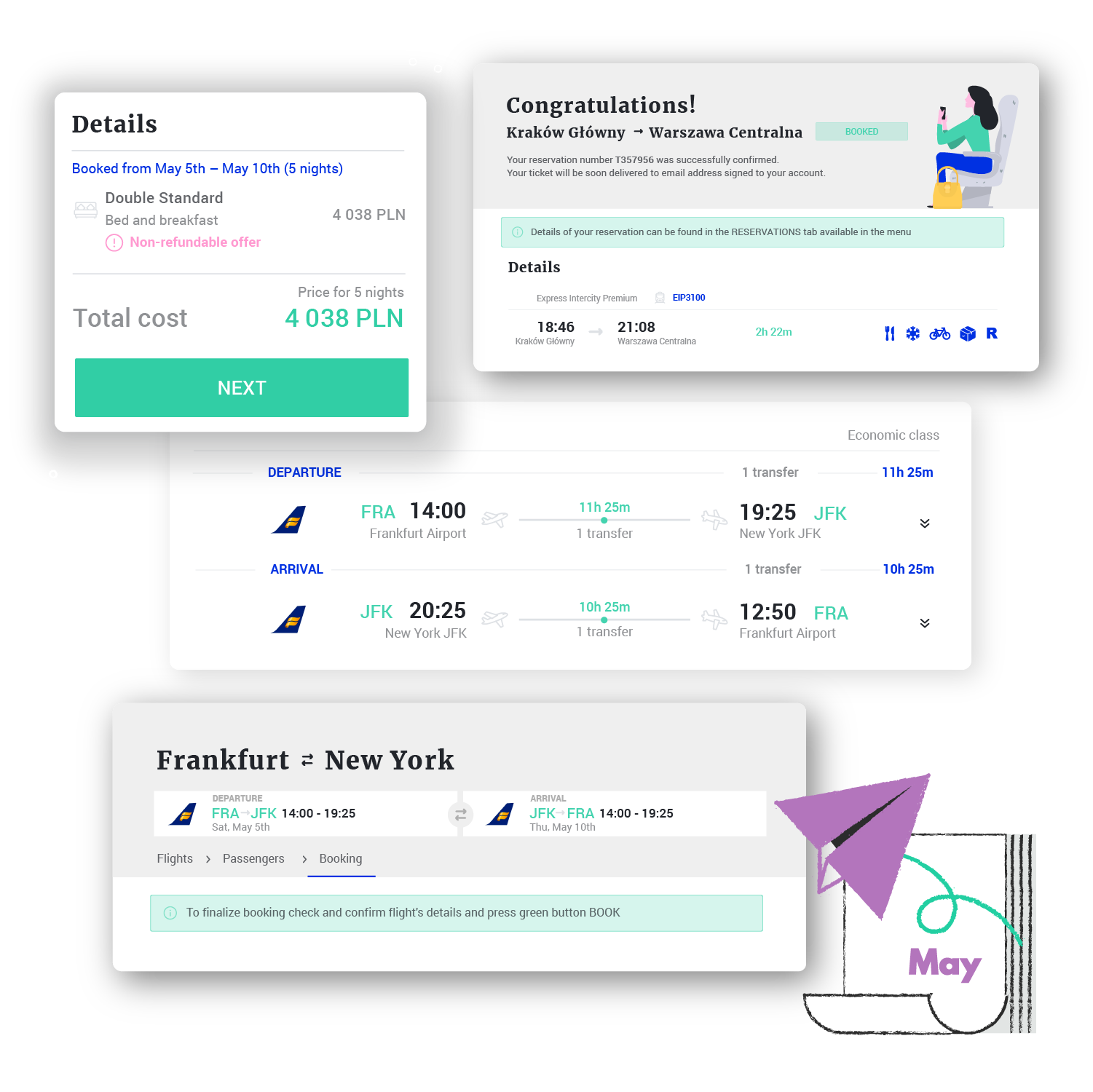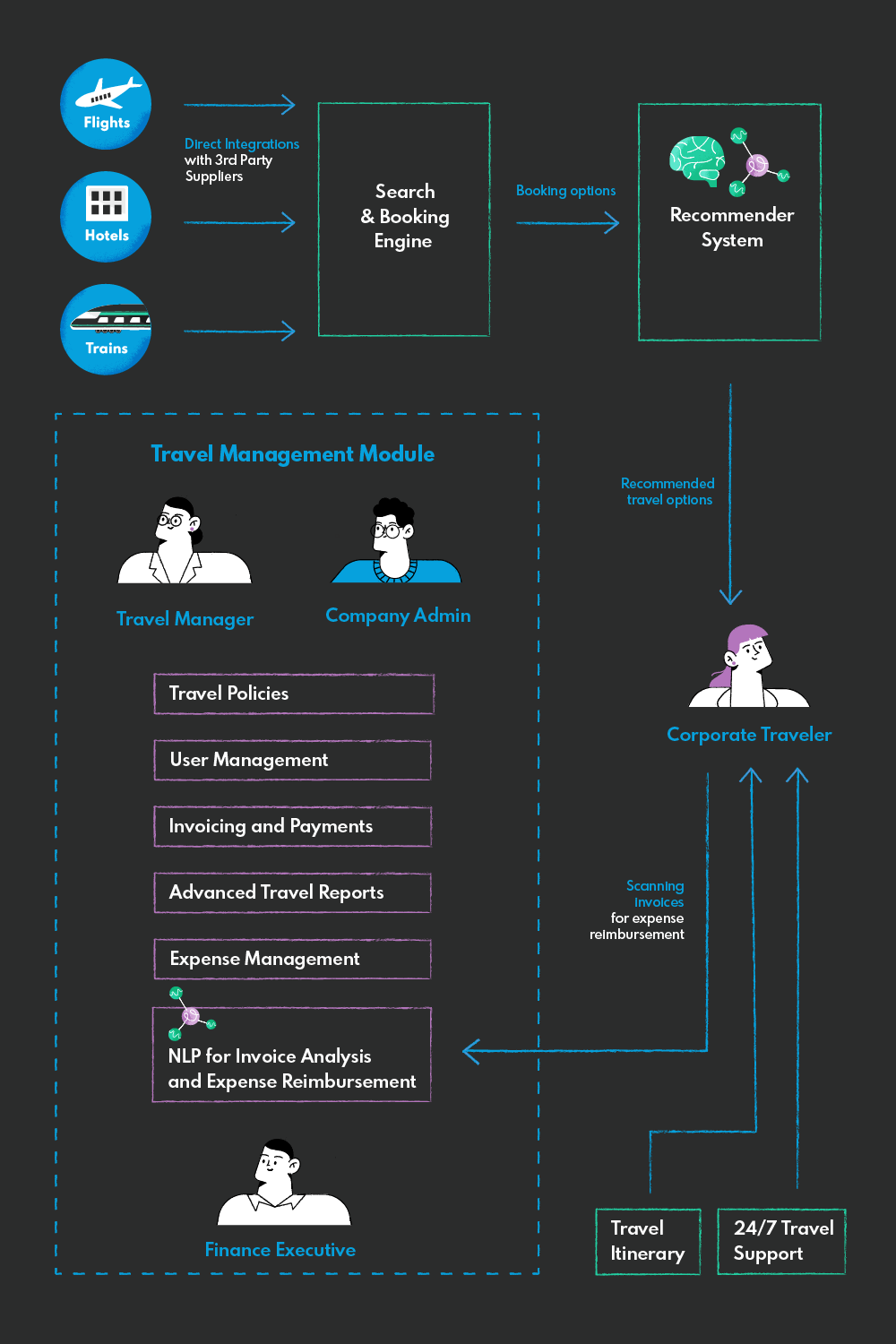Process & Story
The client, a large travel management company, approached us with a challenge to develop a corporate booking tool that would make business travel easier and more efficient for companies of all sizes.
They wanted a platform that offered a wide range of flights, hotels, and rail options, as well as advanced management features, delegation settlement, and 24/7 travel support.
In other words, they needed a one-stop-shop for managing the entire business trip process.
We knew we could rise to the occasion, and we delivered a custom product that allowed for easy searching and filtering of travel options, as well as recommendations based on previous bookings.
Problem
Our client was offering B2B corporate travel services mainly manually. Each time somebody needed to book travel, they searched through various service providers to construct a dedicated offer for the traveler. Upon acceptance, they booked all required travel options, including transportation, accommodation, and insurance. This boutique approach is not scalable, though. At the same time, the rise of easy-to-use B2C booking platforms made the company look for alternative options to deliver its services.
Solution
The solution we provided was a web application focusing on business trips. It included all the features our client required, such as an extensive range of travel options, management tools, and 24/7 support.
To provide a large travel inventory, we developed multiple integrations with various flight providers, accommodation engines, and integration with rail providers. Thanks to direct integrations with providers, the platform offered special prices and offering in comparison to other solutions.
The management features we delivered included an approval process, booking delegation, and spending limits. The tool had advanced options for user management and setting and executing travel policies. We also integrated the platform with the client’s CRM and accounting software to streamline the entire process.
Additionally, we built a recommender system that provided travelers with personalized recommendations based on their previous bookings. This way, they could easily find the best travel options for their needs without spending hours searching.
Lastly, to provide a smooth expense management module, we developed an NLP-based feature that enables photo uploads of all travel invoices and automatically extracts all the relevant information such as cost, date, and vendor. This way, employees can easily submit their expenses for reimbursement without having to fill out tedious forms.
Thanks to our efforts, our client now has a platform that can offer their corporate clients a wide range of travel services that are easy to use and scalable. The user-friendly platform design and custom illustration make corporate travel booking and management smooth and pleasant.
Since launching the platform, our client has seen a significant increase in bookings and satisfaction from their corporate clients. The recommender system has been particularly successful in helping travelers find unique travel options.




